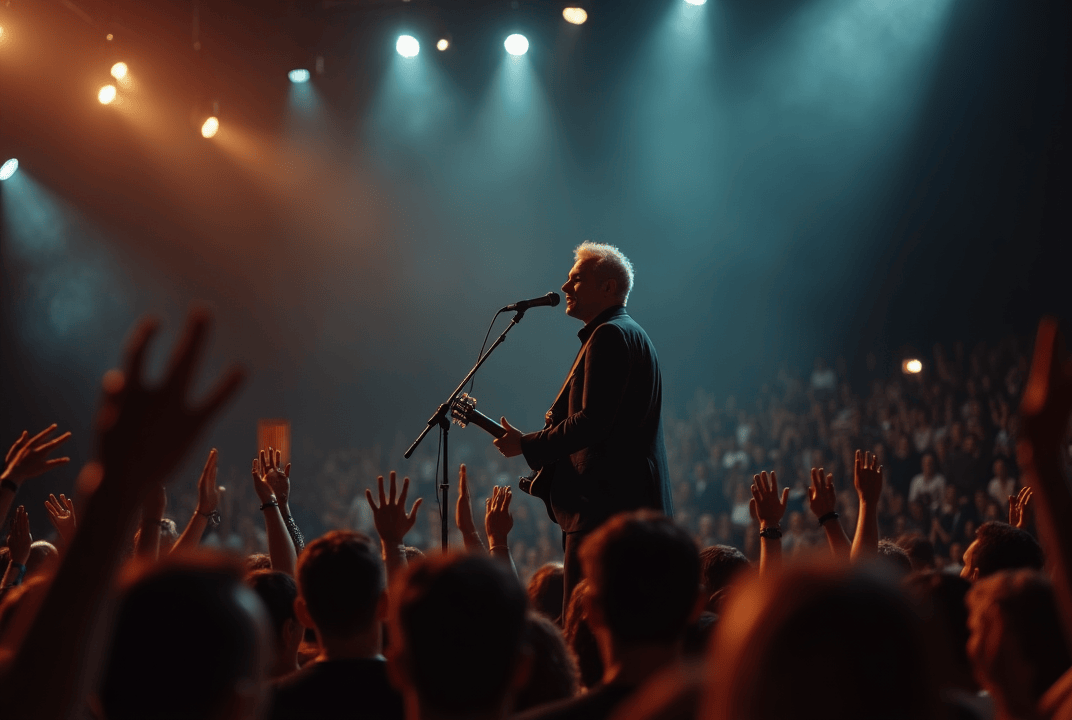≡-How Morrissey’s Stockholm New Concert Cancellation Affects Fans, Tourism in Sweden, and the Global Music Industry? – Viral of Today
<> Viral of Today <>
Home » TOURISM NEWS » How Morrissey’s Stockholm New Concert Cancellation Affects Fans, Tourism in Sweden, and the Global Music Industry? Wednesday, June 25, 2025When fans eagerly purchase tickets for a concert, they’re not just buying a chance to see their favorite artist perform. They’re also committing to a broader experience—traveling to a new destination, staying at hotels, dining at local restaurants, and exploring the surrounding area. For cities that rely heavily on music tourism, these concerts are not only an opportunity for fans to connect with the artists but also a crucial economic driver for the local economy. But when a concert gets canceled—like Morrissey’s recent performance in Stockholm—it’s not just the fans who lose out. The cancellation can lead to a cascade of negative effects, ultimately impacting local tourism and businesses that depend on concert-goers for their livelihood.Morrissey’s Stockholm Cancellation: A Case StudyFans who purchased tickets for Morrissey’s concert in Stockholm, Sweden, on Monday, June 23, were left devastated when the artist canceled his performance just the night before. Morrissey took to his official website to explain the reasoning behind the abrupt cancellation. He claimed that securing the necessary financial support from the music industry had been an ongoing challenge, which made it impossible for the band to complete their tour. He expressed the struggle of constantly moving through countries with little support, mentioning how he and his band were “travel-weary beyond belief.”Morrissey’s tour had already taken him through several major cities, including Dublin, Glasgow, Manchester, Madrid, Paris, Antwerp, and Copenhagen. Fans had already invested in not just tickets, but travel arrangements, accommodations, and other associated costs, all with the expectation of experiencing live music. The abrupt cancellation of the Stockholm concert not only disappointed Morrissey’s fans but also had significant economic consequences for the local tourism industry.The Economics of Music TourismMusic tourism is a significant contributor to local economies, especially for cities and countries known for hosting major concerts and festivals. Concertgoers are often willing to travel from other cities or even countries to experience live performances, and their travel activities contribute directly to the economy. For cities like Stockholm, hosting high-profile concerts from well-known artists can bring substantial revenue in the form of ticket sales, hotel stays, dining, transportation, and other tourist activities.When a concert is canceled, all these associated activities fall apart. Fans who had planned to attend Morrissey’s concert likely booked hotels, made transportation arrangements, and planned meals and sightseeing activities. These are not just incidental expenses—these are important revenue streams for local businesses, ranging from small cafés and restaurants to large hotel chains and transportation services.Tourism boards in these cities rely on major events to bring in visitors, not just from within the country, but internationally. Cancellations have a trickle-down effect, leaving local businesses to contend with lost revenue. In Morrissey’s case, his fans might have flown in from neighboring countries like Denmark or Finland, further amplifying the loss of international tourism. These visitors would have contributed not only through concert ticket purchases but also through spending on accommodations, meals, and other travel-related activities.Impact on Local Businesses and EconomyLocal businesses that thrive during large events like concerts are particularly vulnerable when cancellations occur. Restaurants, bars, shops, and even taxis depend on the influx of tourists to make up for slow periods. For example, a restaurant near a concert venue may experience a sudden surge of customers who are in town for the show, spending on meals, drinks, and services. When the concert is canceled, the expected crowd is no longer coming, and these businesses are left with empty tables and unfilled rooms.In addition, hotels near concert venues often experience increased bookings during concert days. These establishments rely on events like concerts to ensure they can maintain their occupancy rates. Morrissey’s cancellation likely left many of these hotels with empty rooms they had already booked in anticipation of his show. This is especially problematic in the high-demand summer months when tourism is at its peak, and many of these venues rely on events to maintain profitability.Beyond the immediate impact on hospitality and service industries, there’s also a more long-term effect on the destination’s reputation. Repeat visitors to cities with a vibrant concert scene may begin to reconsider traveling to these destinations if concerts are frequently canceled. If people begin to believe that they can’t rely on planned events, they might avoid booking future trips to these areas. This can lead to a broader decline in tourism as travelers turn to more dependable destinations.The Broader Implications for Music and TourismThe cancellation of Morrissey’s Stockholm concert is just one example of how the financial struggles of artists and the lack of support from the music industry can lead to significant consequences beyond just the performer. In the broader context of the music industry’s evolving financial landscape, this cancellation represents a growing concern for cities that depend on music tourism. As Morrissey pointed out, he and his band have “dreamed of Stockholm, Reykjavik, Trondheim, Helsinki, Aarhus” but have received “zero music industry support” despite strong ticket sales.This highlights a critical issue within the music industry: While there is often strong support from fans—evidenced by Morrissey’s high ticket sales—there’s a notable lack of financial backing from major labels, radio stations, and other industry stakeholders. This lack of support is leaving many artists struggling to cover the costs of their tours, which are integral to their livelihoods and careers.When major artists cannot complete their tours due to these financial barriers, it’s not just the fans who are disappointed; local economies that depend on tourism are also negatively affected. Morrissey’s cancellation could serve as a warning sign for the industry as a whole, indicating that without stronger industry support, live music events and the tourism they generate are at risk.The Path Forward: Supporting Musicians and TourismAddressing the financial difficulties faced by artists like Morrissey requires a broader, more collaborative approach. The music industry needs to find sustainable ways to support musicians who are navigating increasingly difficult economic circumstances. This could involve revamping the traditional models of support, including reconsidering the role of record labels and radio stations in helping musicians fund their tours and reach wider audiences.On the tourism side, cities and tourism boards should also take into account the financial strain on artists and the subsequent impact on local economies. If concert cancellations become more frequent, tourism boards may need to find alternative ways to support the cultural and artistic infrastructure of their cities. Creating partnerships between local businesses, government entities, and the music industry could help ensure that live performances remain a viable and sustainable part of the tourism economy.A Symbiotic Relationship Between Music and TourismThe cancellation of Morrissey’s Stockholm concert is a stark reminder of the delicate balance between music and tourism. While fans are left disappointed, the economic consequences are felt across entire local economies that rely on live music to drive tourism. Morrissey’s frustrations with the lack of support from the music industry and the subsequent cancellation highlight the interconnected nature of these industries. To ensure the continued success of both live music and tourism, it’s imperative that stronger support systems are put in place for artists, as well as local businesses and tourism sectors.As the music industry evolves, the collaboration between artists, the industry, and local tourism bodies will be crucial in sustaining the flow of tourism that live music events generate. Without it, both music lovers and the cities that host them risk losing one of the most powerful and culturally significant forms of tourism.Tags: concert cancellations 2025, cultural tourism, Global music tourism, live music and tourism, Morrissey concert cancellation, Morrissey fans, music industry struggles, music tourism impact, music tourism industry, Stockholm concert impact, Sweden concert cancellations, Sweden Tourism, Sweden Travel, tourism economy consequences, travel and music economy
This information will surprise you!
See also
- Read until the end to discover everything.
- Important information you need to know.
- Interesting facts and helpful tips.
Conclusion
Did you enjoy the news? Keep following us daily!













